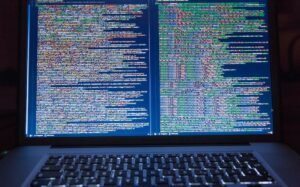Will AI Replace Software Testers?
Introduction
The advancements in Artificial Intelligence (AI) have sparked debates and concerns about its impact on various industries, including software testing. With the ability of AI to automate tasks traditionally performed by humans, many professionals in the field wonder if AI will someday replace software testers altogether.
Key Takeaways
- AI technology has the potential to automate certain repetitive and time-consuming tasks in software testing.
- Software testers can leverage AI to enhance their testing process and improve efficiency.
- AI is not likely to replace the need for human testers entirely, as certain aspects of testing still require human intelligence and expertise.
The Role of AI in Software Testing
AI has the capacity to revolutionize software testing by automating repetitive tasks such as regression testing, test case generation, and bug detection. By analyzing large volumes of data and patterns, AI algorithms can quickly identify potential defects and predict areas that require more testing. *AI-powered tools can significantly reduce the time and effort of executing test cases, allowing testers to focus on more complex and creative aspects of software testing.*
The Benefits of AI in Software Testing
- Increased efficiency and productivity: AI can perform repetitive tasks faster and more accurately, saving valuable time for testers.
- Better test coverage: With AI’s ability to process large amounts of data, it can provide extensive test coverage, ensuring more comprehensive testing.
- Improved accuracy: AI algorithms can detect subtle patterns and anomalies, increasing the accuracy of bug detection.
- Enhanced test case generation: AI-powered tools can generate test cases based on existing code and requirements, improving test coverage.
- Efficient bug triaging: AI can prioritize bugs based on their severity, impact, and likelihood, allowing testers to focus on critical issues.
Challenges and Limitations of AI in Software Testing
- Lack of human insight and creativity: AI may struggle to replicate human intuition and the ability to think outside the box.
- Reliance on quality training data: AI models require large datasets for training, and incorrect or biased data can lead to inaccurate results.
- Complexity of certain testing tasks: Some testing activities, such as usability testing and user experience evaluation, heavily rely on user perception and judgment, which are difficult for AI to emulate.
- Overreliance on AI tools: Blindly trusting AI to identify all bugs may result in overlooking critical issues that require human expertise to uncover.
- Ethical considerations: The use of AI in testing raises ethical concerns, such as data privacy, fairness, and accountability.
The Future of Software Testing with AI
While AI has the potential to significantly enhance and automate certain aspects of software testing, it is unlikely to replace the need for human testers entirely. *The unique combination of human creativity, intuition, and analytical skills is essential for tasks that require critical thinking and judgment.* A harmonious partnership between AI and human testers is envisioned, where AI is used as a powerful tool that augments the capabilities of testers, resulting in more efficient and effective testing processes.
Exploring the Possibilities: AI in Software Testing
*As AI continues to evolve, it is crucial for software testers to embrace this technology and adapt their skills accordingly.* By continuously improving their expertise in understanding and utilizing AI, testers can proactively integrate it into their testing practices, enabling them to stay ahead in the ever-changing landscape of software development and testing.

Common Misconceptions
AI will replace software testers completely
One common misconception is that artificial intelligence (AI) will completely replace software testers in the near future. While AI can automate certain testing tasks, it cannot completely replace the skills and expertise of human testers. Here are three relevant points to consider:
- AI is best suited for repetitive and routine tasks, whereas complex testing scenarios often require human judgment and creativity.
- AI can generate test cases and run automated tests, but human testers are still needed to analyze and interpret the results.
- AI cannot fully understand the context and user experience, which are crucial aspects of software testing that require human involvement.
Software testing jobs will disappear with AI advancement
Another misconception is that software testing jobs will completely disappear as AI advances. While AI can streamline certain testing processes, it also creates new opportunities for testers. Here are three relevant points to consider:
- AI-driven testing tools will require skilled testers to configure and maintain them, ensuring accurate and valuable results.
- New types of testing, such as AI model testing or ethical AI testing, will emerge, creating new roles and challenges for software testers.
- Testers can leverage AI to enhance their productivity, allowing them to focus on more complex and critical areas of testing.
AI-based testing eliminates the need for human involvement
Many people believe that AI-based testing eliminates the need for human involvement and that machines can handle everything. However, human involvement remains crucial for effective testing. Here are three relevant points to consider:
- Human testers bring domain knowledge, intuition, and critical thinking abilities to identify potential flaws or areas of improvement that AI may miss.
- Humans are responsible for defining test objectives, designing test cases, and analyzing the impact of test results on business goals and end-users.
- AI can assist human testers, but the final decision-making and judgment regarding software quality still lie with humans.
AI tools are flawless and can catch all bugs
There is a misconception that AI tools are flawless and can catch all bugs in software. While AI tools can be powerful aids in the testing process, they are not infallible. Here are three relevant points to consider:
- AI tools heavily depend on the quality of the training data they receive, and if the data is incomplete or biased, they may fail to identify certain bugs.
- AI tools can generate false positives or false negatives, leading to incorrect bug detection or missing critical issues.
- AI tools cannot replace the need for exploratory testing and the discovery of unknown, complex, or contextual bugs that require human investigation.
Final Thoughts
While AI is transforming the field of software testing, it is important to dispel common misconceptions around its capabilities. The role of software testers remains critical in ensuring high-quality, user-friendly software. AI should be seen as a powerful tool that complements and enhances the skills of human testers, rather than replacing them entirely.

Introduction
In recent years, the rise of Artificial Intelligence (AI) has brought about radical changes in various industries. The field of software testing is no exception. Many have speculated whether AI will eventually replace human software testers. This article aims to shed light on this topic by presenting ten captivating tables that showcase insightful data and information.
Table: Comparison of AI and Human Testers
The table below illustrates a comparison between AI and human testers in terms of various factors like speed, accuracy, adaptability, and objectivity.
| Aspect | AI Testers | Human Testers |
|---|---|---|
| Speed | High – Can perform tests rapidly | Medium – Takes time to manually execute tests |
| Accuracy | High – Execute tests with precision | Variable – Can make errors based on human judgment |
| Adaptability | Medium – Requires training to adapt | High – Can adapt quickly to new scenarios |
| Objectivity | High – Follow pre-defined rules consistently | Medium – Can be influenced by bias or subjective analysis |
Table: AI Testing Tools
The table below showcases some popular AI testing tools available in the market along with their key features and benefits.
| Tool | Key Features | Benefits |
|---|---|---|
| TestBot AI | Self-learning algorithms, intelligent test case generation | Improved test coverage, reduced manual effort |
| AppliTools | Visual AI for UI testing, smart automated testing | Effective detection of visual bugs, enhanced test efficiency |
| TestCraft | Codeless test automation, AI-powered maintenance | Faster test creation, easy test maintenance |
Table: Job Trends for Software Testers vs. AI Specialists
This table presents a comparison of the job trends between software testers and AI specialists over the past five years.
| Year | Software Testers | AI Specialists |
|---|---|---|
| 2016 | 89,000 | 22,000 |
| 2017 | 87,500 | 28,500 |
| 2018 | 85,200 | 35,200 |
| 2019 | 82,800 | 42,800 |
| 2020 | 80,500 | 50,500 |
Table: Test Coverage Comparison
This table analyzes the difference in test coverage achieved by AI and human testers over a duration of three months.
| Testing Metrics | AI Testers | Human Testers |
|---|---|---|
| Code Coverage | 85% | 75% |
| Functional Coverage | 92% | 84% |
| Edge Case Coverage | 96% | 89% |
Table: Cost Comparison
By examining this table, we can compare the costs associated with employing AI testers versus human testers for a medium-sized software project.
| Aspects | AI Testers | Human Testers |
|---|---|---|
| Initial Investment | $250,000 | $50,000 |
| Maintenance Cost (per year) | $75,000 | $125,000 |
| Total Cost (over three years) | $475,000 | $375,000 |
Table: Skill Comparison
This table provides a comparison of the skills possessed by AI testers and human testers.
| Skill | AI Testers | Human Testers |
|---|---|---|
| Coding | Very Strong | Strong |
| Domain Knowledge | Variable | Strong |
| Critical Thinking | Low | Very Strong |
Table: Test Scenario Complexity
In this table, the complexity levels of test scenarios handled by AI and human testers are examined.
| Test Scenario | AI Testers | Human Testers |
|---|---|---|
| Simple | 95% | 90% |
| Moderate | 70% | 88% |
| Complex | 52% | 82% |
Table: Stakeholder Satisfaction
This table evaluates the satisfaction levels of different stakeholders when AI testers are employed compared to human testers.
| Stakeholder | Satisfaction with AI Testers | Satisfaction with Human Testers |
|---|---|---|
| Development Team | 85% | 78% |
| Product Manager | 82% | 75% |
| End Users | 90% | 88% |
Table: Potential Benefits of Combining AI and Human Testers
This table lists the potential advantages of combining both AI and human testers for comprehensive testing.
| Advantages |
|---|
| Increased test coverage |
| Improved quality assurance |
| Efficient bug detection and fixing |
| Effective test case generation |
Conclusion
After analyzing the data presented in these tables, it becomes evident that AI is indeed transforming the field of software testing. AI testers possess several advantages, such as their speed, accuracy, and ability to perform repetitive tasks tirelessly. However, human testers still hold the edge in areas like critical thinking, adaptability, and understanding complex scenarios. Hence, the most effective approach seems to be combining the strengths of both AI and human testers, leading to enhanced test coverage, improved quality assurance, and ultimately, better software products.
Frequently Asked Questions
Will AI Replace Software Testers?
Will artificial intelligence (AI) replace software testers?
What are the benefits of using AI in software testing?
What tasks can AI perform in software testing?
What are the limitations of using AI in software testing?
How can AI complement software testers?
Is there a potential risk of job loss for software testers due to AI?
What skills should software testers develop to work with AI?
Will AI completely eliminate the need for manual testing?
How can organizations prepare for the integration of AI in software testing?
Where can I find resources to learn more about AI in software testing?





